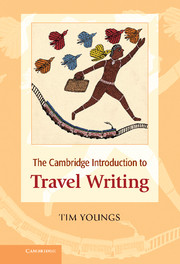Book contents
Chapter 8 - Travelling b(l)ack
Published online by Cambridge University Press: 05 May 2013
Summary
My sympathies were with the pagans.
Richard WrightAccounts of great travels never included black people, so I had no role models.
Colleen J. McElroyEarlier chapters have referred to the widespread contemporary critical view that, ‘By producing knowledge about the other and circulating colonial stereotypes, travel writing is implicated in the reproduction of colonialism’, an argument that leads some critics to ‘consider the travelogue an essentially imperialist mode of representation’. The present chapter will examine some of the consequences of, and challenges to, the colonial legacy.
Writing at the end of the twentieth century, Patrick Holland and Graham Huggan stated: ‘Travel writing today is beginning to take on a multicultural ethos. It is becoming increasingly difficult to justify the traveler’s “one-way” vision – his or her perception, regulated from the imagined safety of the metropolis, of people, places, and cultures seen as alien or remote’. We saw in Chapter 5 that modernism helped introduce into travel literature an appreciation of other perspectives, just as it did in other cultural forms. The limitations of a single point of view have been apparent for many years. Barbara Korte rightly acknowledges that ‘Reversing the colonizer’s direction of travel … is a travel pattern encountered long before the emergence of postcolonialism’, although the practice predates by centuries the examples given by Korte. That said, diasporic movement, decolonisation and postcolonialism have undermined in a more concentrated way the claims to universal authority of a white, metropolitan standpoint. In addition, postcolonial studies of travel writing have grown more nuanced, going beyond crude models of domination to take into account local resistance and what Mary Louise Pratt calls transculturation. Pratt explains:
Ethnographers have used this term to describe how subordinated or marginal groups select and invent from materials transmitted to them by a dominant or metropolitan culture…. While subjugated peoples cannot readily control what emanates from the dominant culture, they do determine to varying extents what they absorb into their own, and what they use it for. Transculturation is a phenomenon of the contact zone.
- Type
- Chapter
- Information
- The Cambridge Introduction to Travel Writing , pp. 115 - 130Publisher: Cambridge University PressPrint publication year: 2013
- 1
- Cited by



